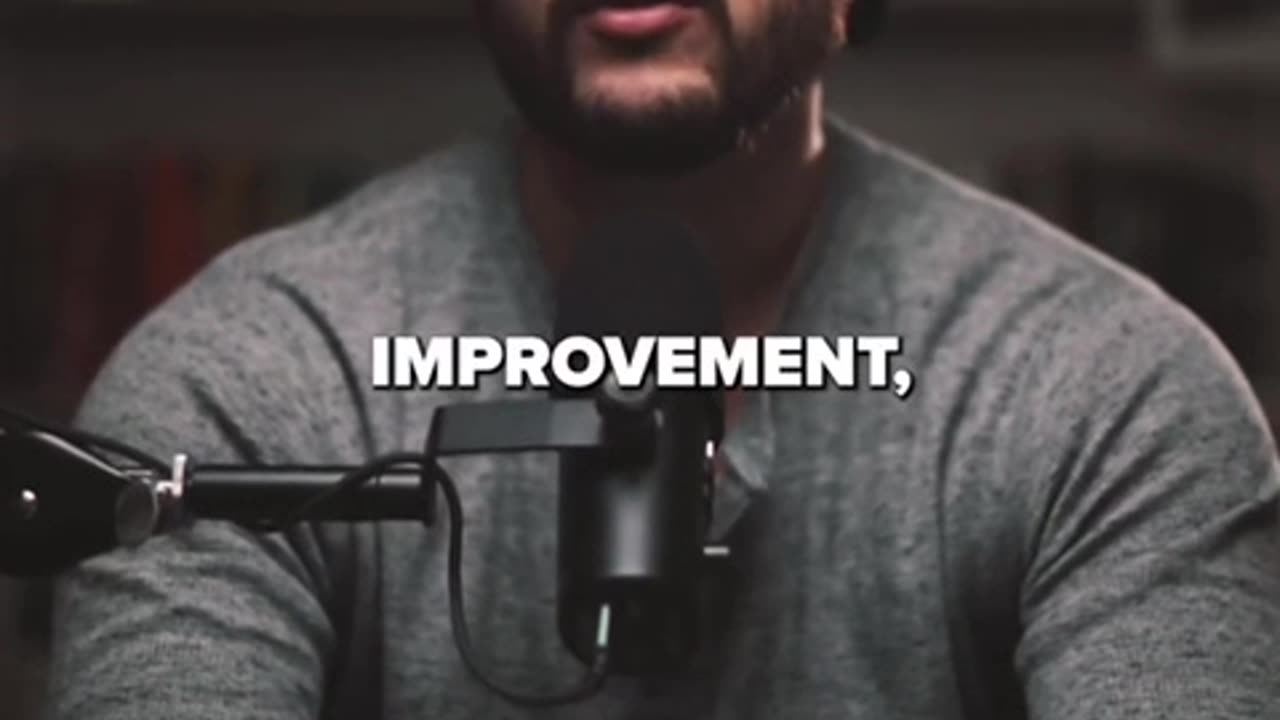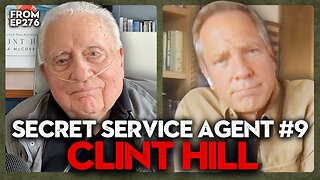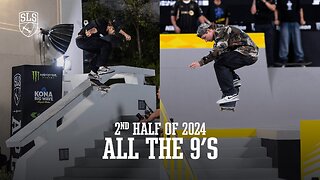Premium Only Content

The Mastery Blueprint: Unleashing Timeless Wisdom for Extraordinary Living
Abstract
Mastery in life is not a destination but a continuous journey of growth, self-discovery, and purposeful action. This comprehensive guide synthesizes profound wisdom from diverse fields such as neuroscience, philosophy, behavioral psychology, productivity science, and ancient spiritual traditions. It offers actionable strategies to cultivate self-mastery, forge meaningful relationships, optimize productivity, enhance well-being, and foster continuous learning. By integrating these timeless principles into daily life, individuals can unlock their full potential and lead lives of fulfillment, impact, and extraordinary achievement.
Introduction
In an era of rapid change and overwhelming information, the pursuit of mastery has never been more relevant. Mastery transcends mere competence; it is about attaining a deep understanding and control over oneself and one’s environment. This guide distills enduring wisdom and cutting-edge research into practical insights that empower individuals to navigate life’s complexities with clarity and confidence. Whether striving for personal excellence, professional success, or profound fulfillment, the path to mastery is paved with intentional actions and enlightened perspectives.
Section 1: Cultivating Profound Self-Mastery
1.1 Embracing Neuroplasticity for Personal Growth
• Understanding Neuroplasticity: The brain’s ability to reorganize itself by forming new neural connections throughout life.
• Application: Engage in activities that challenge the mind—learning a new language, musical instrument, or complex skill.
• Insight: “The mind is everything. What you think, you become.” — Buddha.
1.2 The Power of Mindfulness and Presence
• Mindfulness Practice: Cultivate a non-judgmental awareness of the present moment through meditation and mindful living.
• Benefits: Reduces stress, enhances emotional regulation, and improves cognitive function.
• Actionable Step: Dedicate 10 minutes daily to mindfulness meditation, focusing on breath and bodily sensations.
1.3 Harnessing Emotional Intelligence (EQ)
• Components of EQ: Self-awareness, self-regulation, motivation, empathy, and social skills.
• Application: Reflect on emotional triggers and responses to develop better control and understanding.
• Practical Tip: Keep an emotion journal to track feelings and reactions, identifying patterns and areas for improvement.
1.4 Stoicism and Resilience
• Core Principles: Focus on what you can control, accept what you cannot, and find wisdom in adversity.
• Practice: Daily reflections on challenges faced and lessons learned.
• Insight: “He who conquers himself is the mightiest warrior.” — Confucius.
Section 2: Forging Deep and Meaningful Relationships
2.1 The Art of Authentic Communication
• Active Listening: Fully concentrate, understand, respond, and remember what is being said.
• Empathy Development: Seek to understand others’ perspectives without judgment.
• Actionable Step: Practice paraphrasing what others say to confirm understanding and show genuine interest.
2.2 Building Trust and Rapport
• Consistency and Reliability: Follow through on commitments to build credibility.
• Vulnerability: Share personal experiences appropriately to deepen connections.
• Practical Tip: Schedule regular check-ins with important people in your life to nurture relationships.
2.3 Navigating Difficult Conversations
• Preparation: Identify objectives and anticipate possible responses.
• Techniques: Use “I” statements to express feelings without blaming.
• Strategy: Aim for collaborative solutions where all parties feel heard and respected.
2.4 Cultivating a Supportive Network
• Community Engagement: Join groups aligned with your interests and values.
• Mentorship: Seek mentors and offer mentorship to others.
• Insight: “If you want to go fast, go alone. If you want to go far, go together.” — African Proverb.
Section 3: Optimizing Productivity and Mastery of Time
3.1 The Science of Habit Formation
• Habit Loop Components: Cue, routine, reward.
• Implementation: Identify cues and replace undesired routines with positive behaviors.
• Tool: Use habit-tracking apps to monitor progress and stay accountable.
3.2 Deep Work and Flow States
• Deep Work Definition: Professional activities performed in a state of distraction-free concentration.
• Achieving Flow: Set clear goals, match tasks to skill levels, and eliminate interruptions.
• Actionable Step: Allocate specific time blocks dedicated to deep work, free from digital distractions.
3.3 The Eisenhower Matrix Revisited
• Quadrants Enhanced:
• Urgent and Important: Do immediately.
• Important but Not Urgent: Plan and schedule.
• Urgent but Not Important: Delegate effectively.
• Neither: Eliminate ruthlessly.
• Insight: Focus on tasks that align with long-term goals and core values.
3.4 Energy Management over Time Management
• Understanding Ultradian Rhythms: Natural cycles of energy levels throughout the day.
• Application: Schedule demanding tasks during peak energy periods.
• Practical Tip: Incorporate short breaks and physical movement to recharge.
Section 4: Elevating Health and Well-Being
4.1 Integrative Nutrition and Mindful Eating
• Balanced Diet Principles: Emphasize whole foods, diverse nutrients, and mindful consumption.
• Mindful Eating Practices: Savor each bite, eat without distractions, and listen to hunger cues.
• Actionable Step: Plan meals in advance to ensure nutritional needs are met.
4.2 Holistic Movement and Exercise
• Functional Fitness: Engage in exercises that improve daily life activities.
• Mind-Body Disciplines: Incorporate yoga, tai chi, or qigong for physical and mental harmony.
• Practical Tip: Set realistic fitness goals and track progress to stay motivated.
4.3 Sleep Optimization Strategies
• Sleep Hygiene: Create a restful environment—cool, dark, and quiet.
• Consistent Routine: Maintain regular sleep and wake times, even on weekends.
• Tool: Use sleep-tracking devices to monitor patterns and make adjustments.
4.4 Stress Resilience Techniques
• Cognitive Behavioral Approaches: Reframe negative thoughts and challenge irrational beliefs.
• Relaxation Methods: Practice progressive muscle relaxation, visualization, or guided imagery.
• Insight: “Tension is who you think you should be. Relaxation is who you are.” — Chinese Proverb.
Section 5: Advanced Decision-Making and Problem-Solving
5.1 Systems Thinking
• Holistic Approach: Understand how parts interrelate within the whole.
• Application: Map out processes to identify leverage points for effective change.
• Tool: Use mind-mapping software to visualize complex systems.
5.2 Bayesian Thinking
• Probabilistic Reasoning: Update beliefs based on new evidence.
• Practice: Assess the likelihood of outcomes and adjust decisions accordingly.
• Example: In investment decisions, continuously reassess risks as market conditions change.
5.3 Second-Order Thinking
• Beyond Immediate Consequences: Consider the long-term implications of actions.
• Strategy: Ask, “And then what?” to foresee potential outcomes.
• Insight: “The only thing we know about the future is that it will be different.” — Peter Drucker.
5.4 Ethical Decision Frameworks
• Principle-Based Ethics: Ground decisions in core values and universal principles.
• Stakeholder Analysis: Evaluate how decisions affect all parties involved.
• Actionable Step: Develop a personal code of ethics to guide complex choices.
Section 6: Lifelong Learning and Intellectual Growth
6.1 Metacognition and Self-Directed Learning
• Awareness of Thought Processes: Reflect on how you learn and think.
• Application: Set learning goals, monitor progress, and adjust strategies.
• Tool: Use reflective journals to enhance metacognitive skills.
6.2 The Feynman Technique
• Simplify and Teach: Learn by explaining concepts in simple terms as if teaching someone else.
• Process:
• Write the concept.
• Teach it in your own words.
• Identify gaps and review.
• Simplify further.
6.3 Cross-Disciplinary Exploration
• Intellectual Diversity: Study subjects outside your primary field to foster creativity and innovation.
• Actionable Step: Dedicate time each week to explore new disciplines or topics.
• Insight: “Innovation often occurs at the intersection of disciplines.”
6.4 Cultivating a Growth Mindset
• Belief in Development: Embrace challenges as opportunities to grow rather than obstacles.
• Practice: Replace “I can’t” with “I can’t yet” to reinforce potential for improvement.
• Resource: Read works by Carol Dweck on mindset psychology.
Section 7: Mastery Through Purpose and Vision
7.1 Defining Your Personal Mission
• Clarity of Purpose: Identify what drives you and what you aim to contribute to the world.
• Exercise: Write a personal mission statement that encapsulates your core values and goals.
7.2 Visualization and Goal Setting
• Vision Boards: Create visual representations of your aspirations to reinforce commitment.
• SMART Goals: Ensure goals are Specific, Measurable, Achievable, Relevant, and Time-bound.
• Actionable Step: Regularly review and adjust goals to stay aligned with your evolving vision.
7.3 Service and Contribution
• Impact Focus: Seek ways to add value to others and your community.
• Practical Tip: Volunteer for causes aligned with your mission, amplifying purpose through action.
7.4 Legacy Thinking
• Long-Term Impact: Consider the enduring effects of your actions and choices.
• Reflection: Periodically assess how current pursuits align with the legacy you wish to leave.
Conclusion
The journey to mastery is an ongoing process of self-exploration, disciplined practice, and purposeful living. By integrating these timeless strategies into daily life, you cultivate not only personal excellence but also contribute to the greater good. Mastery is less about reaching a final destination and more about embracing the path of continual growth, learning, and impact. As you apply these principles, you unlock your potential to live not just a successful life, but a significant one.
Final Reflection
Mastery demands dedication, curiosity, and the courage to transcend comfort zones. It invites you to delve deeper into the essence of who you are and what you can become. Remember that every great journey begins with a single step, and every step taken mindfully brings you closer to the extraordinary life you envision. Embrace the wisdom of the ages, harness the knowledge of today, and become the architect of your destiny.
“We are what we repeatedly do. Excellence, then, is not an act but a habit.” — Aristotle
-
 1:11
1:11
FragmentsOfTruth
1 day agoNPCs & The Truman Show Effect: Are They Just Here to Distract You?
95 -
 10:12
10:12
Mike Rowe
2 days agoClint Hill: What A Man. What A Life. | The Way I Heard It with Mike Rowe
5.6K5 -
 1:31:52
1:31:52
Redacted News
2 hours agoBOMBSHELL! This is war! FBI whistleblowers reveal Epstein files being destroyed? | Redacted News
70.7K104 -
 48:55
48:55
Candace Show Podcast
2 hours agoSTOP EVERYTHING. They FINALLY Mentioned ME In The Blake Lively Lawsuit! | Candace Ep 152
49.4K35 -
 1:02:51
1:02:51
In The Litter Box w/ Jewels & Catturd
22 hours agoWhere are the Epstein Files? | In the Litter Box w/ Jewels & Catturd – Ep. 750 – 2/26/2025
50K50 -
 DVR
DVR
Revenge of the Cis
4 hours agoLocals Episode 198: Suits
30.6K6 -
 1:38:56
1:38:56
SLS - Street League Skateboarding
1 day agoTop Moments from the Second Half of the 2024 SLS Championship Tour! All The 9’s 🔥
25.5K1 -
 24:22
24:22
Breaking Points
6 hours agoHouse GOP RAMS THROUGH Medicaid Cuts
29.2K19 -
 1:24:15
1:24:15
The Quartering
5 hours agoRep. Swalwell's VIRAL Confrontation, Jeff Bezos Op-Ed Announcement, and Canada's Anti-Musk Campaign
94.4K25 -
 1:22:57
1:22:57
Tucker Carlson
8 hours agoNancy Pelosi Stock Tracker Chris Josephs: How to Get Rich by Investing Like a Politician
141K64